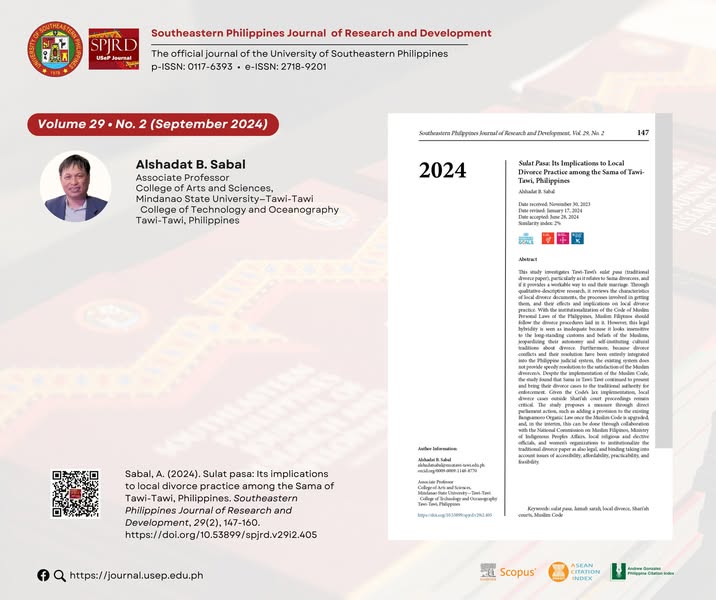
“Sulat Pasa: Its Implications to Local Divorce Practice among the Sama of Tawi-Tawi, Philippines,” the ninth article in the SPJRD September 2024 issue, attempts to tell that traditional divorce practices, particularly the use of the 𝘴𝘶𝘭𝘢𝘵 𝘱𝘢𝘴𝘢, illustrates how it serves not only as a formal document for dissolving marriages but also as a reflection of the cultural values and social dynamics within the community.
Alshadat B. Sabal of the Mindanao State University—Tawi-Tawi College of Technology and Oceanography substantiated the discourse on the preference of many Sama individuals to resolve divorce issues through customary authorities rather than the formal Shari’ah courts. In addition, he shed light on the challenges posed by the existing legal framework, which often fails to accommodate the unique customs and beliefs of the Sama.
This study advocates for a more integrated approach that respects traditional practices while also considering the legal rights of individuals, ultimately calling for reforms that would enhance the accessibility and effectiveness of divorce resolution for Muslim divorcees in the Philippines.
To read the paper, scan the QR code in the poster or click the link below: https://doi.org/10.53899/spjrd.v29i2.405
#SulatPasa
#DivorcePractices
#SPJRD
#Scopus
#ACI


